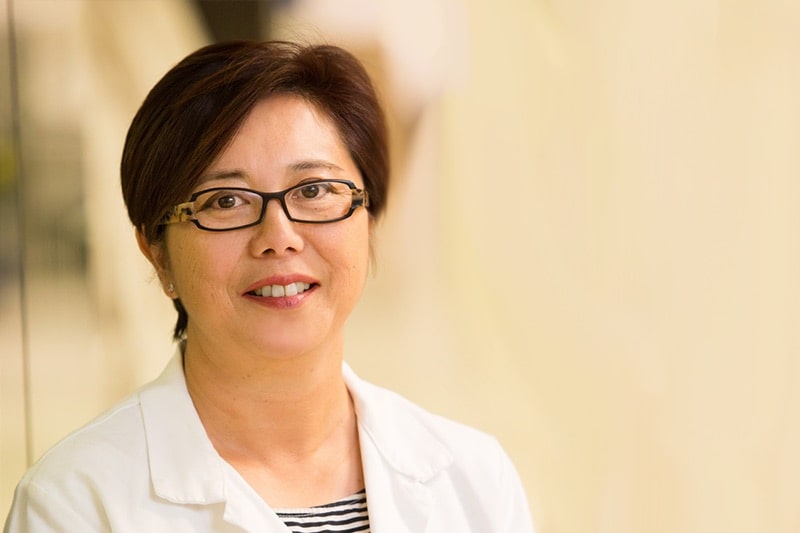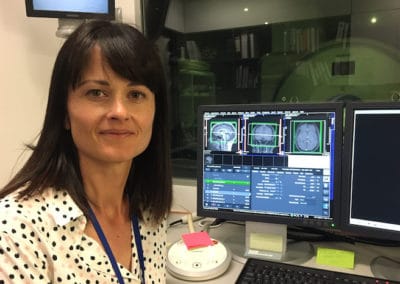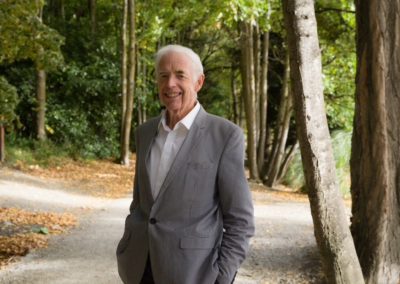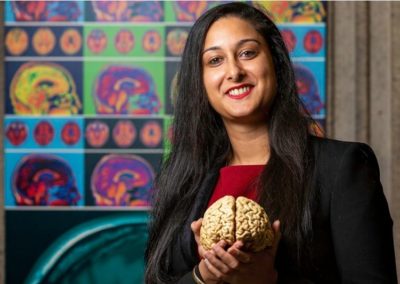Tell us a little bit about your research, what do you do? What do you enjoy most about your work?
My research is focused on the development of new treatments for brain diseases using gene therapy and antibody-based immunotherapies.
I loved reading books and writing stories, crafts and being creative and solving puzzles when I was a kid so I think getting into neuroscience research was a natural progression and the perfect fit for me. Currently, I am working on testing a new gene switch that turns on a therapy in response to signals produced by a sick neuron only that will help refine the application of gene therapy in humans. I am also working on an antibody therapy that has neuroprotective and memory-promoting properties in aged mice, so we are looking at how this could be developed as a treatment for humans.
How did you get interested in (neuro)science?
I got interested in neuroscience quite late. After working as a research technician for a few years, I realised I had a real passion for research so I decided to take the plunge and complete a PhD so it would give me the opportunity to formulate and work on my own ideas. At that time the human brain was like the final frontier, and there was lots to learn about what goes wrong in neurodegenerative diseases. For my PhD, I looked at the role of adenosine in an epilepsy disorder called ‘status epilepticus’ but it sparked an interest in all types of neurological disorders.
Which (female) scientist inspires you most?
I would probably say Rosalind Franklin whose X-ray crystallographic images helped shed light on the structure of DNA.
What were the greatest challenges you have faced as a female scientist? How have you overcome them?
One of the advantages of the job is some flexibility in juggling the demands of being a scientist and a mother, but one of the challenges is making sure a good work/life balance is maintained. We perform research to answer specific research questions but invariably that leads to more questions, so it’s a never-ending conveyor belt and it can be all-consuming. Neuroscience is a passion so I think about my research all the time and how all the pieces of knowledge about a disease might all fit together. My challenge has been making time for myself so I can step away from the science as I think this improves my thought process. I’ve overcome this by going to 6-7 dance/dance fitness classes per week.
What needs to change to make things better for the next generation of women and girl scientists?
My observations are that we don’t have an issue with gender balance and attracting women into neuroscience. For as long as I remember it has been the norm to have equal numbers, if not more, women to men in the Centre for Brain Research where I work. I think the challenge in New Zealand is that the career path beyond 10 years post-PhD is uncertain for many. If funding wasn’t an issue, my wish would be the establishment of a research facility along the lines of a HHMI Janelia Research Campus model where we can put all our best minds together to fully focus on answering the research questions without having to juggle teaching and our other duties.
What advice would you give to young women and girls today?
Go for it! In science, every day is different and every day is a new challenge. If you like the exhilaration of discovery, and knowing that what you do can have a positive impact on someone’s life, then neuroscience is for you.
Deborah Young is Associate Professor in Pharmacology at the University of Auckland. She is a Principal Investigator at Brain Research New Zealand and National Coordinator for the New Zealand Brain Bee Challenge.
Read about more inspiring neuroscientists in our Women in Science series.



